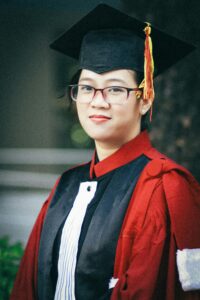
We will explore every facet of this prestigious award program, from its origins and selection criteria to application tips and frequently asked questions. At the end of this guide, you will have a better understanding of what the Otto Bayer Scholarship offers and how to put your best foot forward as an applicant.
Background and History
The Otto Bayer Scholarship was established in 1998 through a large endowment from the estate of renowned German chemist and inventor Otto Bayer. Born in 1881, Bayer devoted his life to scientific research and held over 200 patents by the time of his death in 1959. Perhaps his most famous invention was a new process for producing polyurethanes, which enabled the creation of modern insulating foams and synthetic fibers. However, Bayer considered his greatest achievement to be mentoring numerous young scientists over the years and helping launch their careers.
To continue his legacy of nurturing aspiring researchers, Bayer left the bulk of his estate to establish an advanced study scholarship program for promising graduate students in chemistry and chemical engineering. The inaugural Otto Bayer Scholarship awards were granted in 2000 to two exceptional master’s degree candidates. Since then, the program has expanded considerably thanks to steady investment returns on the Bayer endowment. Each year, it now provides full financial support packages valued at over $100,000 to 5-7 outstanding PhD candidates from around the world.
Selection Criteria
The rigorous selection process for the Otto Bayer Scholarship is highly competitive. On average, only about 1 in 100 applicants are ultimately selected as recipients each year. Those hoping to stand out must demonstrate excellence across several key criteria:
Academic Excellence
Applicants must have an exceptionally strong academic record, usually requiring at least a 3.8 GPA on a 4.0 scale or comparable grades from a non-U.S. university program. Grades alone are not enough, however – selection committees also examine the difficulty and prestige of an applicant’s educational institutions and programs.
Research Experience and Ability
A critical component is prior research experience showing high-level scientific thinking, technical skills, and dedication to independent investigation. At a minimum, scholarship candidates typically have 2-3 years of hands-on experience in a faculty research laboratory, often resulting in publications, conference presentations, or other scholarly outputs. Selection committees seek evidence that an applicant can develop and execute independent research projects at the Ph.D. level.
Letters of Recommendation
Outstanding letters of recommendation from research mentors and professors provide insight into an applicant’s scientific potential, work ethic, communication skills, and likelihood of future success. Selection committees read letters closely for compelling endorsement of a candidate’s talents and fit for a career in scientific research.
Research Proposal and Statement of Purpose
The research proposal and statement of purpose allow applicants to articulate their area of research interest and future career goals within chemistry or chemical engineering. Selection committees assess the originality, significance, feasibility, and advancement potential of a proposed PhD project. Strong written and verbal communication skills are also evaluated at the interview stages.
Awards, Achievements, and Extracurricular Activities
Though not required, awards, scholarships, fellowships, publications, conference presentations, volunteer work, leadership roles, and other significant achievements demonstrate an applicant’s passion for science and commitment above and beyond academic responsibilities. This shows well-rounded individuals with the dedication, work ethic, and initiative valued by the scholarship program.
Benefits and Offerings
As one of the highest-value advanced study awards available globally, the Otto Bayer Scholarship provides recipients with truly comprehensive support to focus full-time on graduate research and studies. Here are some of the key benefits:
Stipend and Tuition Coverage
The scholarship covers all tuition and fees for a Ph.D. program at a top-ranked university selected by the recipient. It also provides an annual tax-free stipend of $50,000 U.S. dollars or equivalent, distributed in monthly installments, to cover living expenses.
Travel and Research Support
An additional $10,000 per year goes toward research-related travel, equipment, supplies, and conference attendance. If needed, recipients may also apply these funds toward short-term visits to collaborating research institutions anywhere in the world.
Mentorship and Networking
Scholars participate in annual workshops and conferences organized by the Bayer Foundation to meet mentors, connect with other grantees and alumni, and present research findings. These events foster an international community dedicated to scientific excellence and innovation.
Flexibility and Portability
Once selected, scholars have full independence to pursue Ph.D. studies with any faculty advisor and at any accredited graduate program worldwide specializing in chemistry or chemical engineering. The scholarship travels with recipients wherever their research takes them.
Application Process and Timeline
The Otto Bayer Scholarship application is entirely online through the program website. Here are the typical steps and deadlines involved:
- October 1 – Online application portal opens for the following academic year. Scholarships are awarded for studies beginning the following Fall term.
- January 15 – Final deadline to submit a complete online application, including undergraduate transcripts, research proposal, letters of recommendation, resume/CV, and personal statement. Late applications will not be considered under any circumstances.
- February – Finalist interviews conducted via online video conference. Selection committees invite the top 15-20% of applicants to interview.
- March 15 – All applicants are notified of selection results. Recipients have until April 30 to accept or decline the scholarship offer.
- May 1 – Scholarship funds disbursed for use beginning in the Fall academic term. Recipients can now formally enroll in their chosen graduate programs.
The online application form collects basic personal and academic information. However, the key components are the research proposal, letters of recommendation, and written statements that allow applicants to truly shine as compelling candidates. With diligent preparation and forethought, qualified scholars can maximize their chances through a well-crafted submission.
Preparing Stellar Application Materials
Let’s explore how to craft outstanding application materials with care, polish, and persuasiveness.
Research Proposal
The proposal outlines an original PhD research project with scholarly merit and feasibility. Its quality heavily factors into selection decisions. Give the proposal several revisions with feedback from mentors. Clearly state hypotheses, expected methods, and techniques, projected outcomes, broader significance, and long-term career goals. Express enthusiasm while maintaining academic rigor. Proposals ranking in the top 10% will stand apart.
Letters of Recommendation
Request letters 4-6 weeks before the deadline to allow writers ample time. Provide recommendation forms, a CV/resume, and a draft statement highlighting your strengths and fit for graduate study. Follow up politely if letters are not submitted on time. Ask if they can comment on technical knowledge, time management, presentation skills, leadership, creativity, and potential for future success. Outstanding recommendations will cement a strong impression.
Personal Statement
This 2-page narrative provides insight beyond academic or professional credentials. Share your motivation for scientific study, research interests, and career vision. Frame experiences positively to demonstrate qualities like dedication, perseverance, resilience, and independence. Connect experiences clearly to future goals and the benefits you propose to provide through the scholarship funding. Compelling statements ignite the selection committee’s interest.
Resume/CV
List all education, coursework, research experiences, publications, presentations, honors/awards/fellowships, and relevant work or volunteer experiences in reverse chronological order. Quantify achievements clearly, like publications and projects. Highlight technical skills, proficiency in techniques, and use of special equipment. Evidence of independent research, leadership, and commitment will persuade. Have others review for formatting, typos, and clarity before submitting.
With diligent preparation of high-caliber application materials, motivated scholars can maximize their potential for scholarship selection while maintaining intellectual integrity. Outstanding submissions require advance planning, multiple revisions with input, and framing experiences positively to showcase fit and qualifications convincingly.
Preparing for Interviews
The subsequent interview stage is highly selective, usually involving video conferencing with current Otto Bayer Scholars and selection committee members. Only the top 5-10% of applicants will advance to this round. Common questions assess candidate’s:
- Motivation for graduate research and how it relates to long-term career goals
- Understanding of their proposed project, including methodology, expected outcomes, and ability to respond to challenges
- Technical knowledge relevant to their project and field of specialization
- Effective communication skills in explaining concepts and promoting enthusiasm
- Initiative, perseverance, and independence in past research experiences
- Leadership potential and how the scholarship will allow them to advance scientific knowledge
To excel, rehearse and explain research thoroughly yet concisely, and be ready to discuss hands-on skills or knowledge gaps. Anticipate thoughtful questions and have specific examples to demonstrate competencies. Maintain confidence and enthusiasm without arrogance. Research committee members must thoroughly show informed interest in their work. With practice, any qualified applicant can shine during a video interview.
Frequently Asked Questions
Now that we’ve covered the Otto Bayer Scholarship in-depth let’s answer some frequently asked questions:
How competitive is it to receive the scholarship?
On average, only about 1% of applicants are selected each year. Candidates must truly excel in all areas – from academics and research to recommendation strength, proposal quality, and interview performance. Only the very top applicants tend to secure this highly prestigious award.
Can international students apply?
Yes, the Otto Bayer Scholarship is open to qualified applicants worldwide, regardless of citizenship. Recipients have full flexibility to pursue Ph.D. studies at any accredited graduate program in an eligible country, allowing the scholarship to travel with them.
What fields of study are supported?
The scholarship specifically supports graduate studies in chemistry and chemical engineering. This includes not only experimental laboratory research but also computational, materials science, and interdisciplinary projects bridging chemistry with other fields like biology, physics, medicine or environmental science.
Is the scholarship renewable?
The Otto Bayer Scholarship is currently intended to support a single continuous period of PhD studies, normally expected to take 4-5 years to complete. Renewal is generally not necessary as the full stipend and tuition coverage are designed to see recipients through to the doctoral degree. However, scholars who require additional time are often considered for one-year funding extensions on a case-by-case basis.
What are my chances as an international applicant?
International candidates face no inherent disadvantages, and a significant portion of past recipients have come from outside the US or Europe. The selection criteria and rigorous standards remain identical regardless of nationality or citizenship. As with domestic applicants, international students must demonstrate truly superior academic excellence, research experience, and preparation in their application materials and interviews to be competitive. Having attended an elite overseas university can strengthen an international applicant’s profile.







